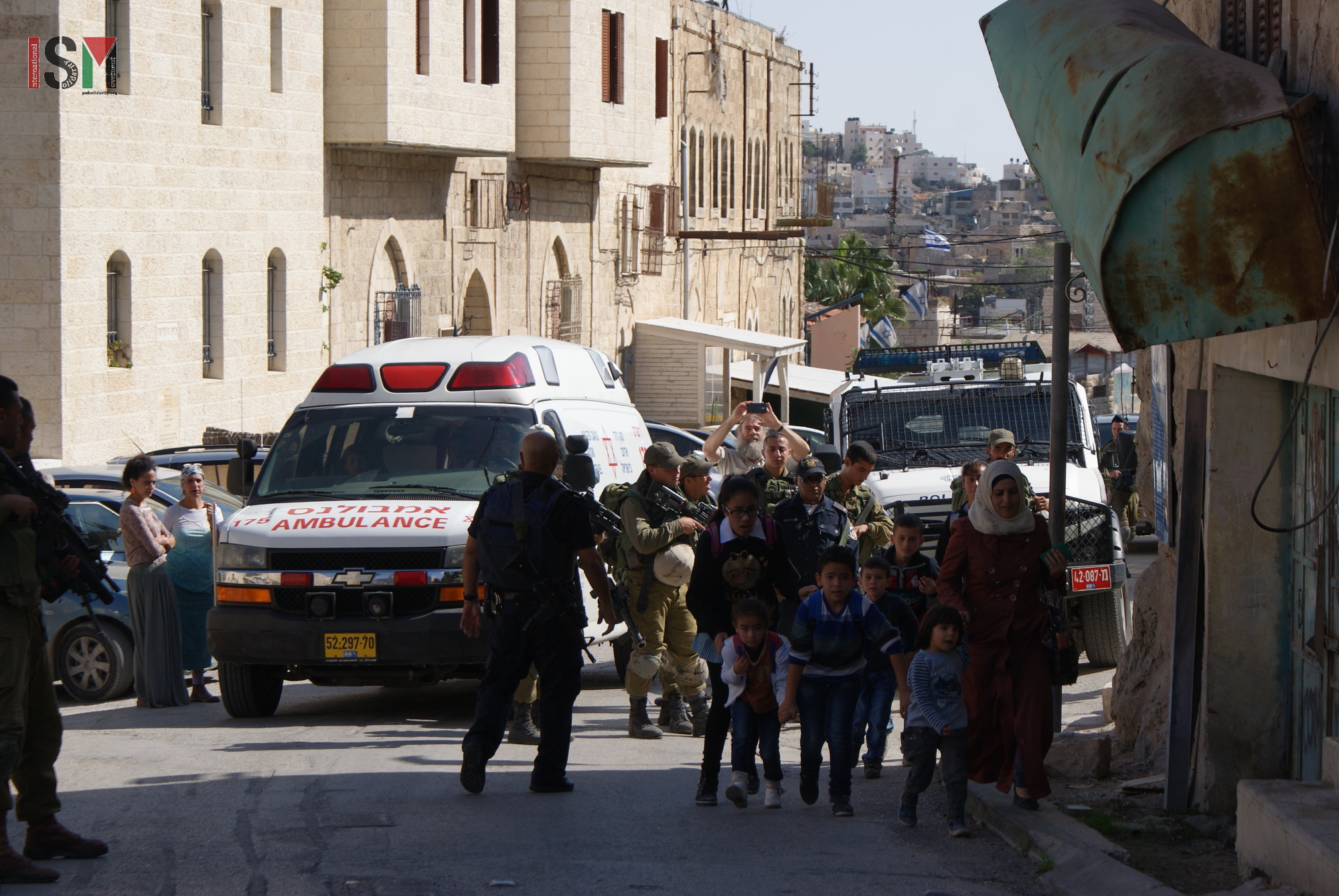Tag: Settler violence
-
Palestinians held hostage in their own homes by Israeli forces in al-Khalil (Hebron)
7th November 2015 | International Solidarity Movement, al-Khalil team | Hebron, occupied Palestine On November 7th 2015, Israeli forces violently took over several homes of Palestinian families in occupied al-Khalil (Hebron), trapping the families inside their own homes. Large parts of the city have been declared a ‘closed military zone’, preventing Palestinians from moving, while settlers…
-
Israeli forces redouble brutal efforts to curtail and isolate Palestinians’ daily lives
1st November 2015 | International Solidarity Movement, al-Khalil team | Hebron, occupied Palestine On Sunday, 1st November 2015, Israeli forces prevented movement of Palestinians in various areas in al-Khalil (Hebron) that have previously been declared a ‘closed military zone’. Violence against school-children and teachers has seen a sharp increase. International observers documenting and reporting on…
-
Israeli forces increase harassment of Palestinian school-children in al-Khalil (Hebron)
1st Novemeber 2015 | International Solidarity Movement, al-Khalil team | Hebron, occupied Palestine This morning at Qurtuba school in al-Khalil (Hebron), Israeli soldiers harassed school-children, teachers and adults trying to pass the nearby checkpoint. The stairs leading to Qurtuba school, the scene of a heinous murder of a Palestinian youth by Israeli forces three days…



